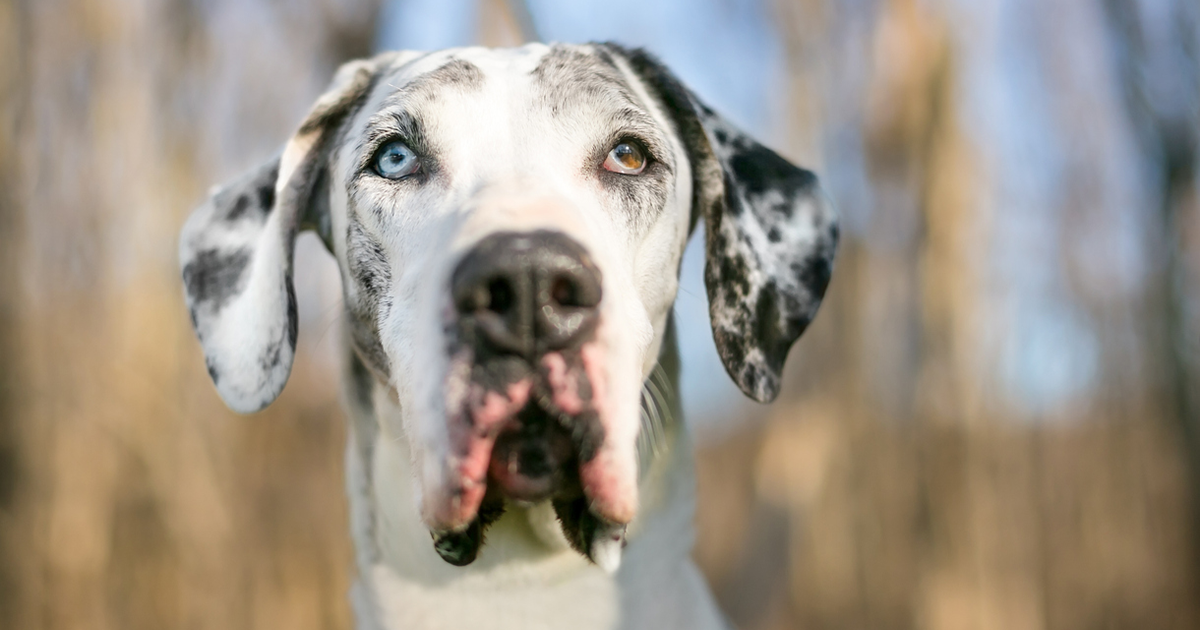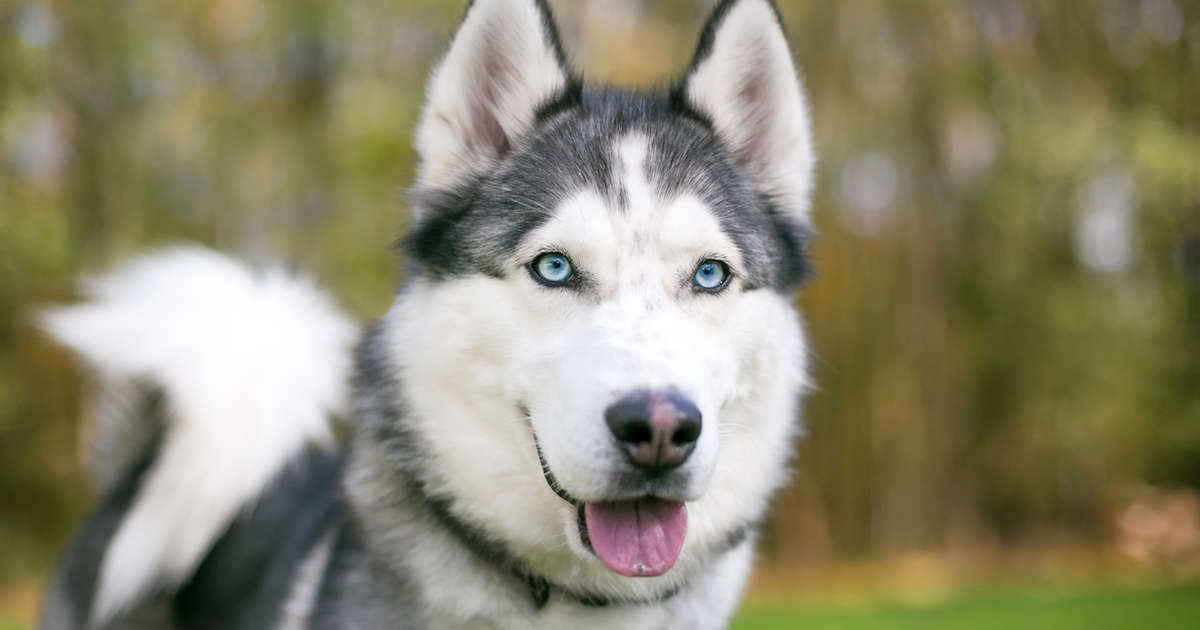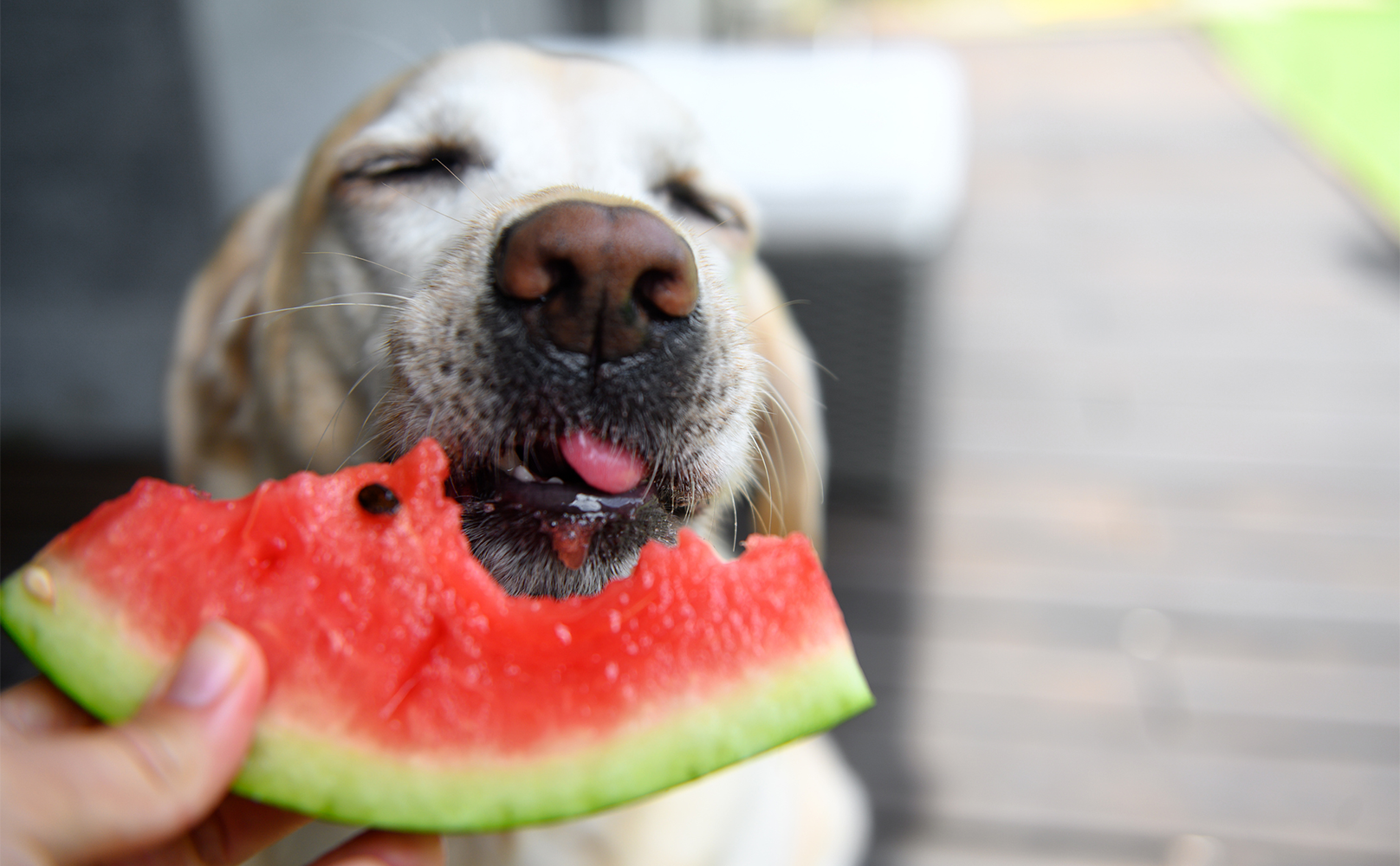For Pups With Short Attention Spans…
While your partner’s snoring may keep you from getting sleep at night, you probably have learned to adore your pooch’s snoring. But as cute as it may be, most dog owners have to wonder, why does my dog snore?
Most of the time, a dog snoring is harmless. However, snoring can also be a sign of other more serious health problems and conditions. Always keep your vet informed if your pup’s snoring becomes concerning. Reasons why your dog may be snoring include nasal obstructions, breed anatomy, allergies, canine obesity, dental issues, fungal disease, colds, second-hand smoke, and physical obstructions.
Whether it’s due to your dog’s breed, sleeping position, the structure of their skull, or potential illness, a variety of conditions and scenarios can cause snoring. No matter how charming it might sound (especially recorded on your phone), consult a vet if you’re concerned your dog’s log-sawing snores are not entirely innocent.
1. Obstructed Nasal Passages
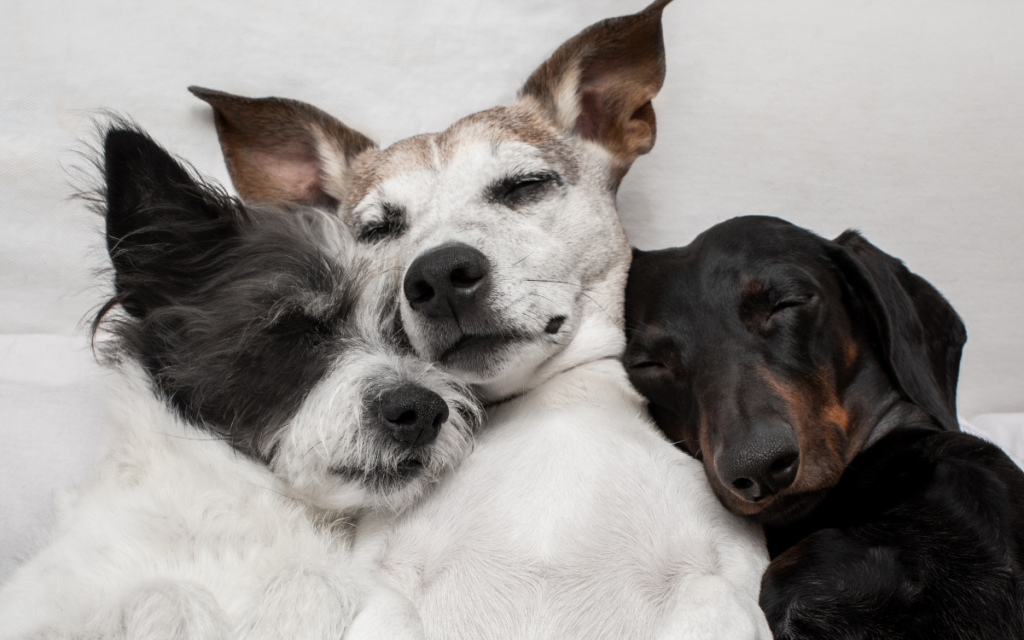

Snoring can occur due to something as simple as your dog sleeping in a strange position. If they’re on their back and their tongue gets in the way of the throat, the restricted air flow produces that oh-so charming freight train impression.
On the other hand, objects and growths can also obstruct the dog’s airways in their nasal passages. If your dog acquires a new snoring habit that doesn’t go away no matter what position they’re sleeping in, a vet check is a good idea.
2. Breed Anatomy
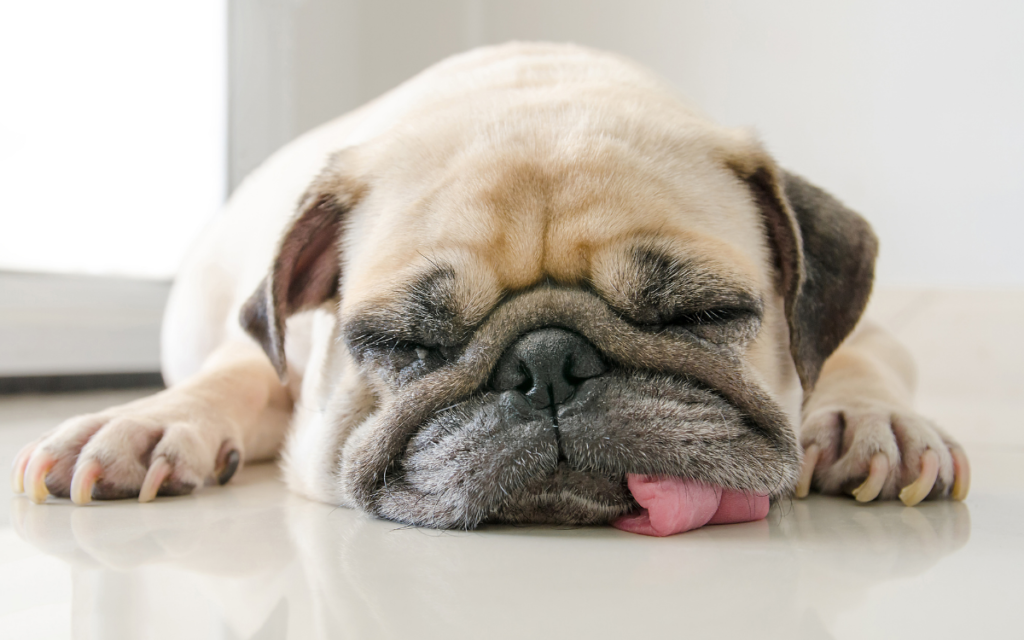

Brachycephalic—or flat-faced—breeds are prone to snoring due to breathing issues. That cute flat face requires lots of things to be compressed together more than in other dogs, and this can lead to lots of extra airway noise.
Their airways are shorter, their tongues are bigger (relative to the size of their mouths), their soft palates are longer (causing them to flap loosely down in the back of the throat), and their nostrils are narrower and tend to collapse in on themselves. All of these changes lead to body parts and tissues getting in the way of airflow, making it harder to move air in and out.
If you share your pillow with a bulldog, pug, boxer, or Frenchie, keep listening to your dog. Most of them will snore, but if you notice a persistent change in their snore or they seem to be struggling more than normal to breathe easily, contact your vet ASAP.
For dogs whose breathing is more profoundly affected, there are some surgeries available to open up those airways a bit (first to widen the nostrils, and sometimes a second procedure to shorten the soft palate). These procedures, when necessary, can improve comfort and quality of life for these dogs in a big way; struggling to breathe has consequences over time. Don’t hesitate to ask your vet if they might be recommended for your flat-faced cutie!
3. Allergies
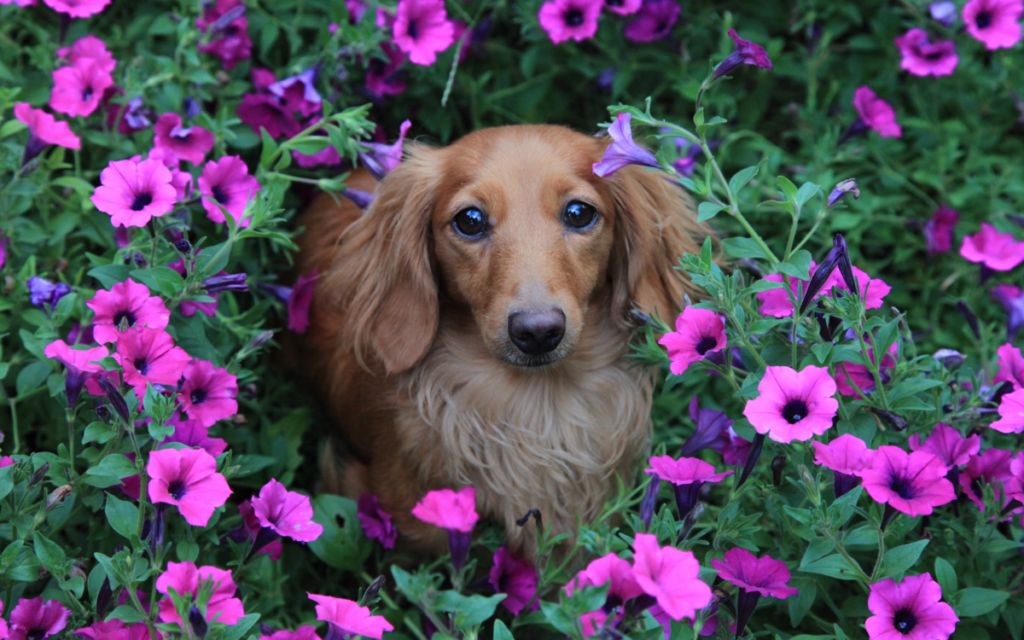

Same as with people, allergies to dust, pollen, and dander can make it hard to breathe. And, just like with people, allergy-related snoring may come and go with the seasons. Many dogs have medications to help relieve symptoms, or it could be as simple as changing the air filter in your house.
4. Canine Obesity
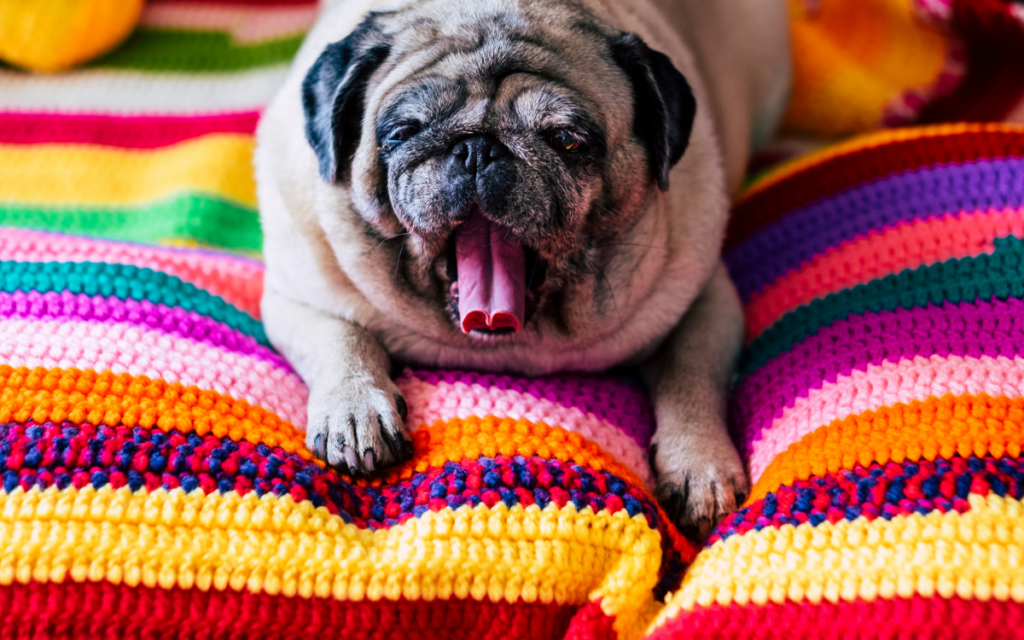

More tissue around the throat means extra pressure against the larynx or trachea, and a greater chance that airways will constrict. This can be extremely dangerous, especially if the trachea ends up collapsing. Obesity causes many other health complications as well, which is a good enough reason for any pooch to lose a few pounds.
5. Dental Issues
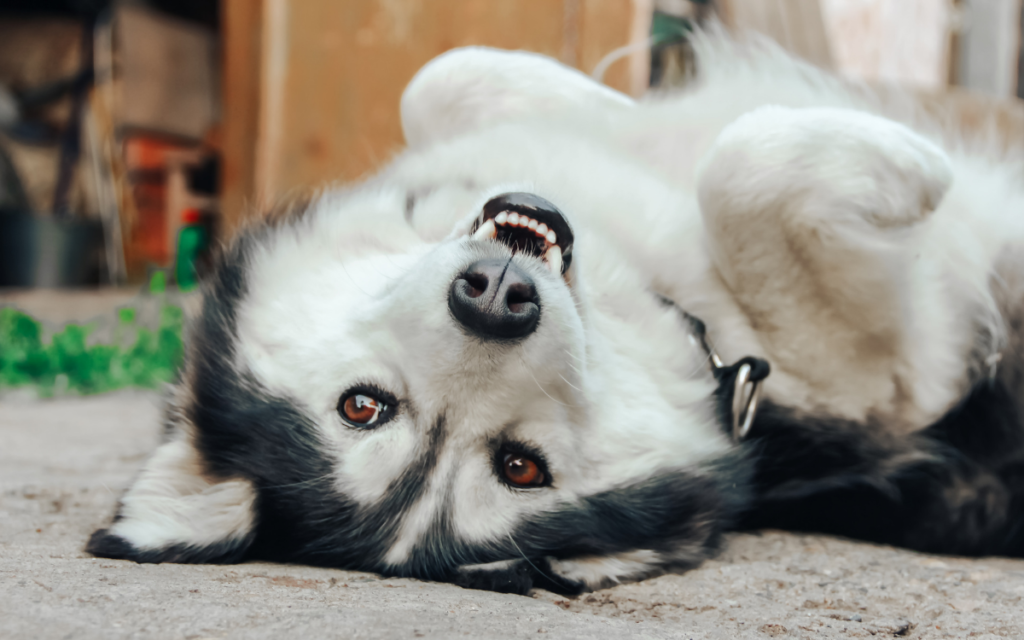

Dental issues are a problem for your dog for many reasons, and sometimes snoring can be a sign that a problem is afoot! If a rogue tooth becomes abscessed, for example, it can cause infection and inflammation in the nasal passages, which in turn will cause snoring.
Alternatively, a growth in the mouth could partially block the airways. These types of abnormalities can easily become more serious and require more intensive intervention. Stay on top of veterinary dental care with regular checkups and cleanings, and try to keep an eye on that mouth at home, too!
6. Fungal Disease: Aspergillosis
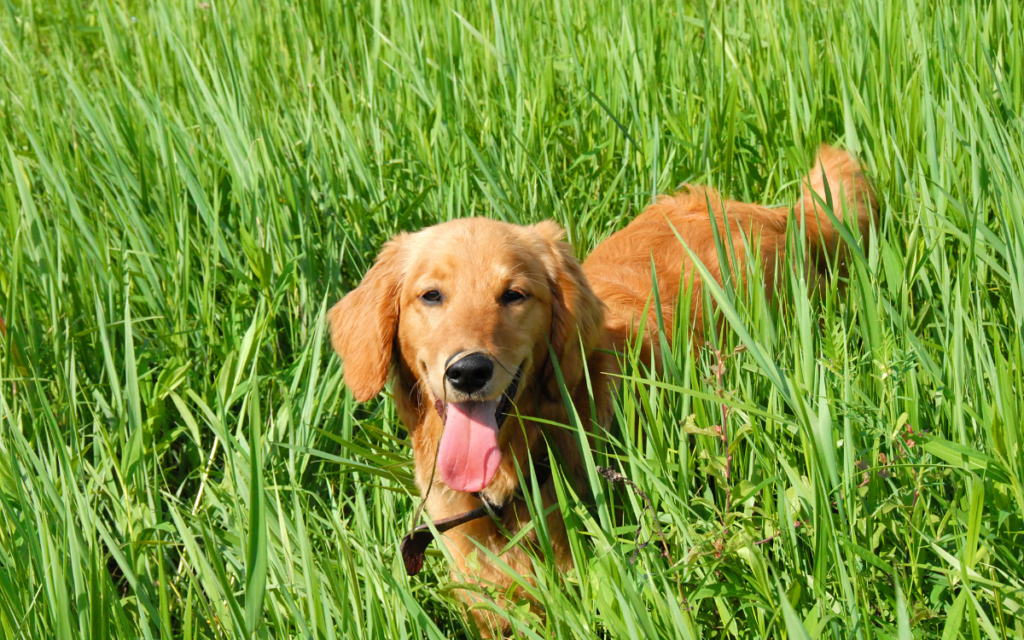

This is something that affects both humans and animals, and occurs as a result of inhaling mold spores in hay, grass, and compost piles. The spores enter and colonize in the body through the lining of the nasal cavity, causing irritation and pretty impressive nasal discharge.
Treating this condition can be an extensive process, but the outlook is good if you can fully eliminate the infection. Not treating it is far worse for your pup, as this condition can become quite debilitating.
7. The Common Cold
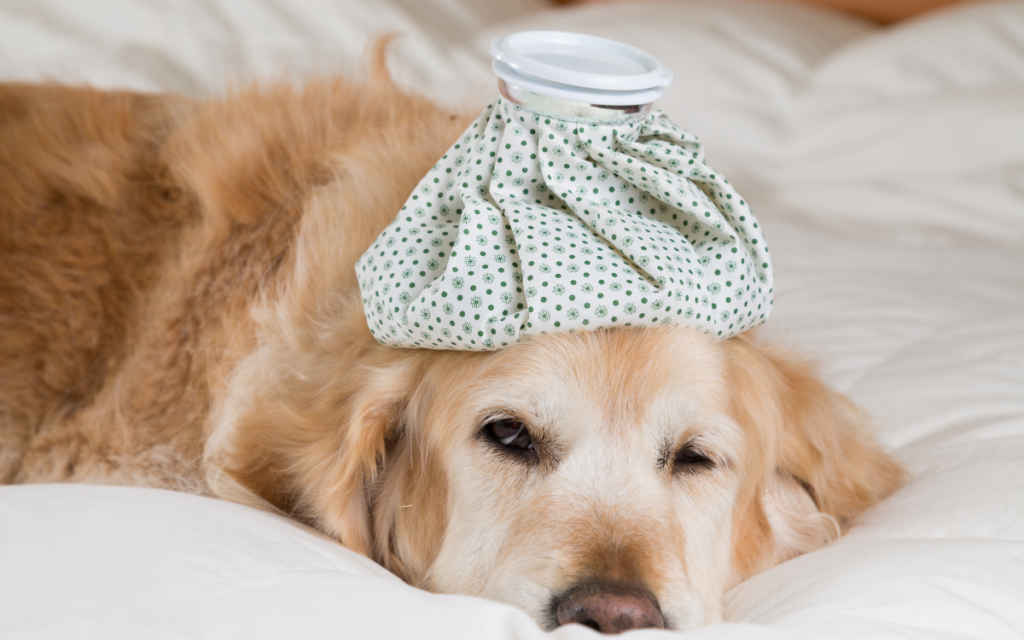

Dogs can get sniffles, too. Inflammation and irritation may be the culprits behind runny noses, sneezing, wheezing, and snoring. The good news is, just like with people, the symptoms tend to resolve when the cold does.
8. Second-Hand Smoke
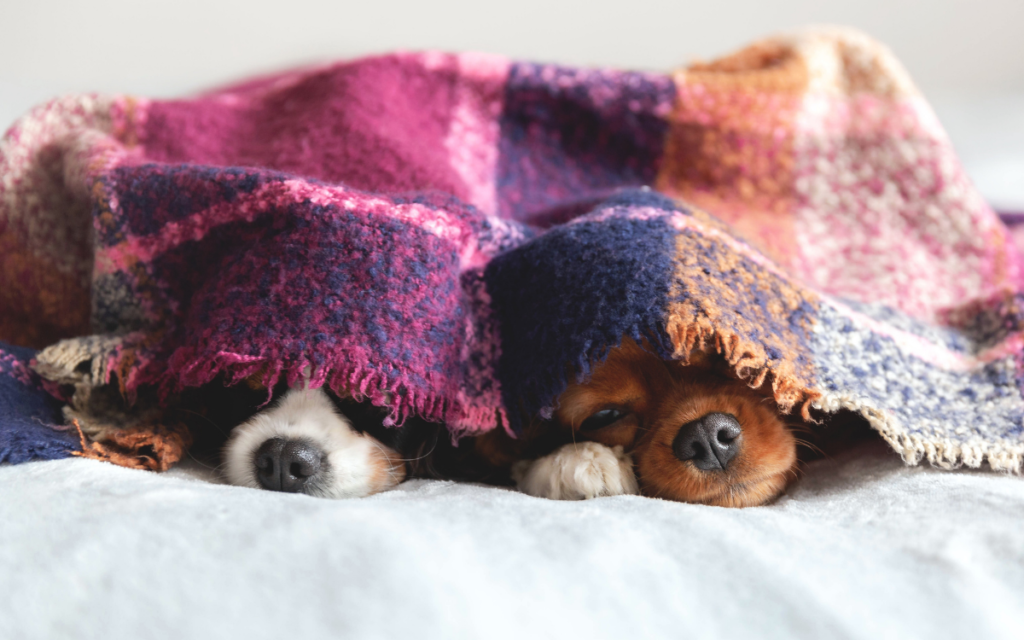

Big no-no, humans! You should know better. If there was ever a reason to quit, do it for your dog. Studies have shown that second-hand smoke in dogs causes alterations in their airways and DNA damage to airway tissues1,2.
9. Physical Obstruction
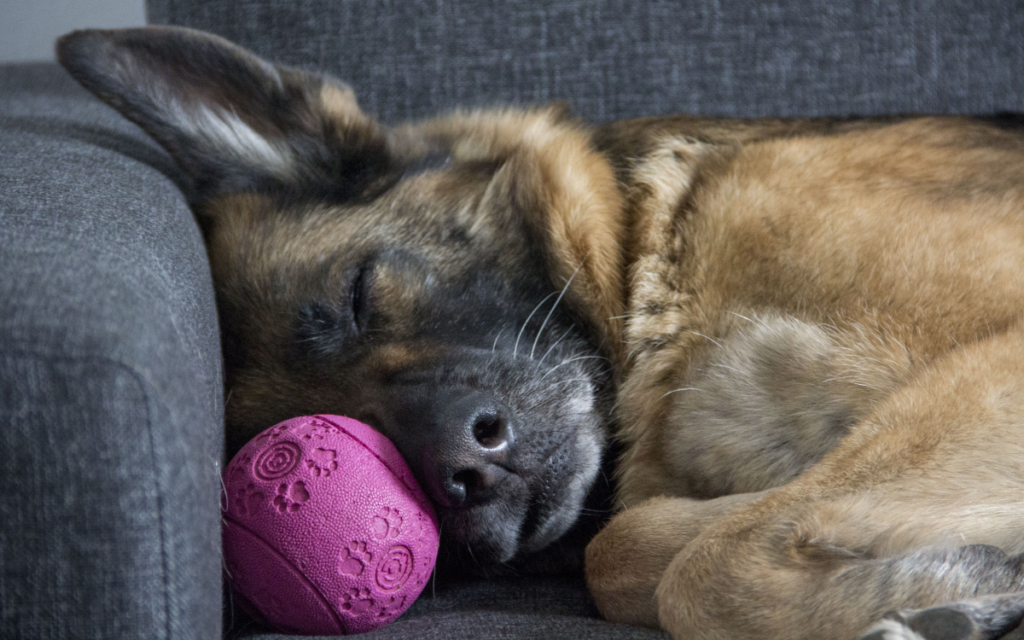

It’s not unheard of for debris to lodge itself in your dog’s throat or nasal passages and inhibit breathing (or cause major irritation and tissue swelling), whether it’s a fragment of a tennis ball or piece of mulch. If you suspect this is the case, it’s time for a vet visit.
This article has been reviewed by Margo Hennett, DVM.
Margo Hennet, DVM, cVMA, and veterinarian at BARK is a canine nutrition, health, & wellness connoisseur. She has a combined 10 years of experience in clinical medicine, research, and education—that’s 70 dog years of know-how—and graduated from Colorado State University as a Doctor of Veterinary Medicine. She completed specialized training in internal medicine prior to working as a general practitioner in Colorado, has authored peer-reviewed publications and textbook chapters, holds certification in veterinary medical acupuncture, and is a member of the American Academy of Veterinary Nutrition and American Veterinary Medical Association.
Sources
1Pérez, N., Berrío, A., Jaramillo, J. E., Urrego, R., & Arias, M. P. (2014). Exposure to cigarette smoke causes DNA damage in oropharyngeal tissue in dogs. Mutation Research/Genetic Toxicology and Environmental Mutagenesis, 769, 13–19. https://doi.org/10.1016/j.mrgentox.2014.04.013
2Roza, M. R., & Viegas, C. A. (2007). The dog as a passive smoker: Effects of exposure to environmental cigarette smoke on domestic dogs. Nicotine & Tobacco Research, 9(11), 1171–1176. https://doi.org/10.1080/14622200701648391



